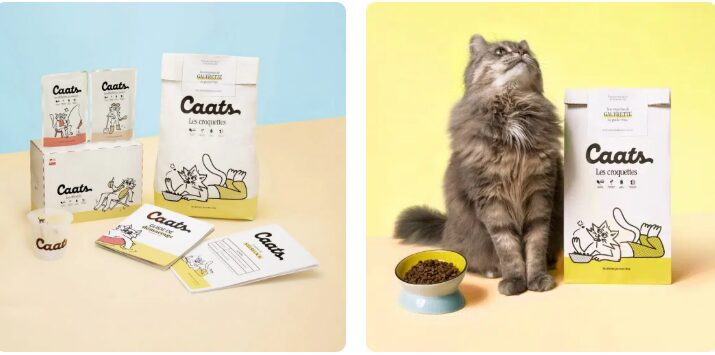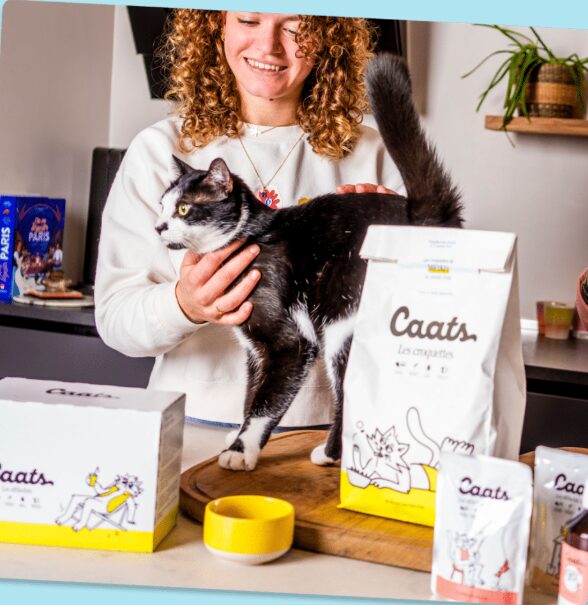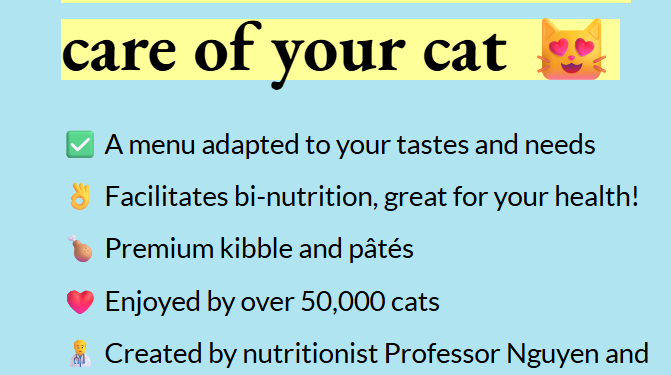Introduction to the importance of nutrition for cats
Every cat owner knows that our furry friends deserve the best. But what does “the best” really mean when it comes to their nutrition? Just like us, cats thrive on a balanced diet tailored to their unique needs. The right food can boost their energy, enhance their mood, and even prolong their lives. With so many options available, navigating the world of cat nutrition can feel overwhelming. That’s where we come in! Let’s explore how you can provide your feline companion with the essential nutrients they need for a happy and healthy life.
When it comes to our feline friends, nutrition plays a crucial role in their overall health and happiness. Just like humans, cats need a balanced diet to thrive. But what does that really mean? With so many options on the market, choosing the right food can feel overwhelming. Whether you have a playful kitten or a wise old cat lounging in the sun, understanding their nutritional needs is essential for keeping them vibrant and active.
Cats are obligate carnivores; this means they require certain nutrients found primarily in animal products. So how do we ensure they get all of these vital components? From protein-rich meals to hydration tips, proper nutrition influences everything from coat shine to energy levels. Join us as we delve into the essential elements of feeding your furry companion well!
Understanding cat food labels and ingredients
When choosing cat food, understanding the label is crucial. Ingredients are listed in descending order by weight. This means the first few items play a significant role in your cat’s diet.
Look for high-quality protein sources like chicken or fish at the top of the list. Cats are obligate carnivores, so they thrive on meat-based diets.
Beware of vague terms such as “meat meal.” It might not be clear what type of meat is used. Always opt for specific labels—chicken meal or salmon meal provide clearer information.
Also pay attention to grains and fillers. While some cats digest them well, others may experience allergies or sensitivities.
The nutritional adequacy statement is another key component; it tells you if the food meets AAFCO standards for complete nutrition, which can help ensure your feline friend receives balanced meals each day.

Special dietary considerations for cats with health issues
Cats with health issues require special attention when it comes to their diet. Conditions like diabetes, kidney disease, and allergies can significantly impact what they should eat.
For diabetic cats, low carbohydrate diets are essential to help manage blood sugar levels effectively. Consulting your vet for the right food choice is crucial in these cases.
Kidney problems often necessitate a diet that’s lower in protein but high in quality sources. This helps reduce waste products that can strain the kidneys while still providing necessary nutrients.
Allergies may demand a limited ingredient diet or hypoallergenic formulas to avoid common allergens found in many cat foods.
Always keep an eye on your cat’s weight and overall condition as you navigate these dietary adjustments. Regular check-ups will ensure you’re making the best choices tailored specifically for your furry friend’s needs.
Tips for transitioning your cat to a new diet
Transitioning your cat to a new diet can be tricky. Start slowly. Mix the new food with their current one. Gradually increase the ratio of the new food over several days.
Monitor their reaction closely. Some cats may be more sensitive than others. Watch for signs of upset stomach or aversion to the taste.
If your cat is hesitant, try warming up the new food slightly. This can enhance its aroma and make it more appealing.
Consistency is key. Stick to feeding times and avoid offering too many treats during this period, as they can create confusion about what’s acceptable.
Be patient and give them time to adjust. Each cat has its own pace when adapting to change in diet, so don’t rush the process or force them if they’re resistant at first.
The role of hydration in a cat’s diet
Hydration is often overlooked but plays a crucial role in your cat’s overall health. Cats have a low thirst drive, which makes it essential to ensure they get enough water through both food and drink.
Wet food can be an excellent source of moisture. Many cats benefit from incorporating canned food into their diet as it contains significantly more water than dry kibble. This simple switch can help keep them hydrated and support urinary tract health.
Freshwater should always be available. Some cats prefer running water, so consider investing in a pet fountain to encourage drinking. Regularly change the water to keep it clean and appealing.
Watch for signs of dehydration like lethargy or dry gums. If you notice these symptoms, consult your vet promptly. Keeping your feline friends well-hydrated helps prevent health issues down the line while contributing to their vitality and comfort.

Conclusion: Providing proper
Providing proper nutrition for your cat is essential to their overall health and well-being. A balanced diet supports their immune system, promotes a healthy coat, and helps maintain an ideal weight. Understanding food labels allows you to choose the right options tailored to your feline’s needs.
For cats with specific health issues, consulting a veterinarian about dietary changes is crucial. Special formulations can address conditions like diabetes or kidney disease effectively. Transitioning to new diets takes patience; gradual changes help avoid gastrointestinal upset.
Hydration plays a significant role in nutrition as well. Cats often don’t drink enough water, which can lead to urinary tract problems and other health concerns. Incorporating wet food into their meals can increase fluid intake significantly.
Prioritizing your cat’s nutritional needs ensures they live a happier, healthier life by your side. Take time to explore different options and consult professionals when necessary—your furry friend will thank you for it!
















